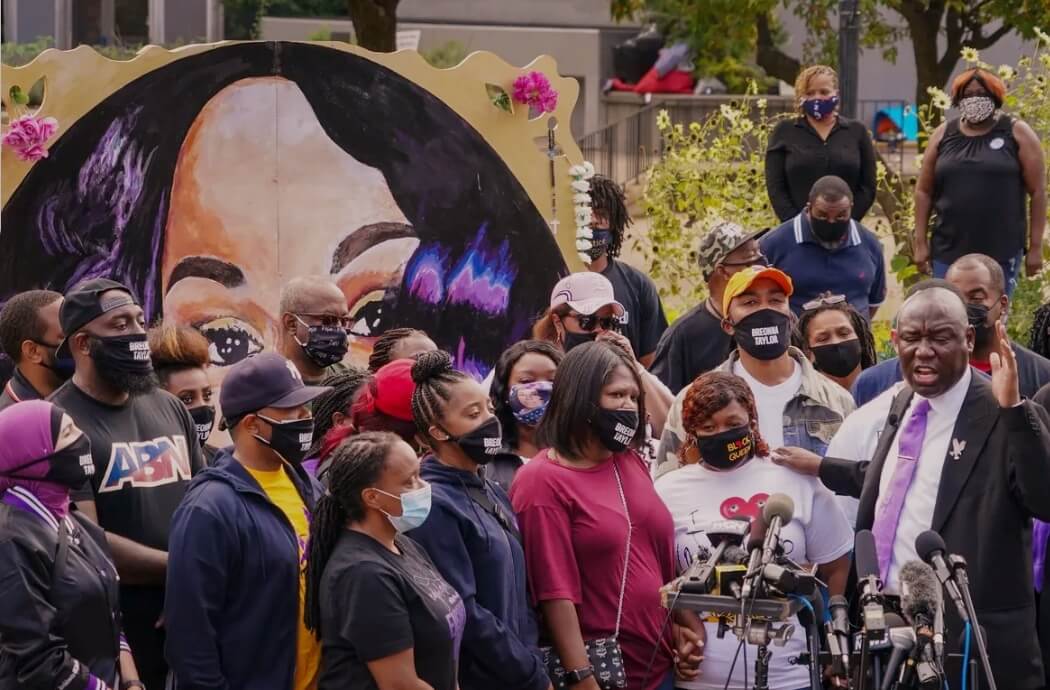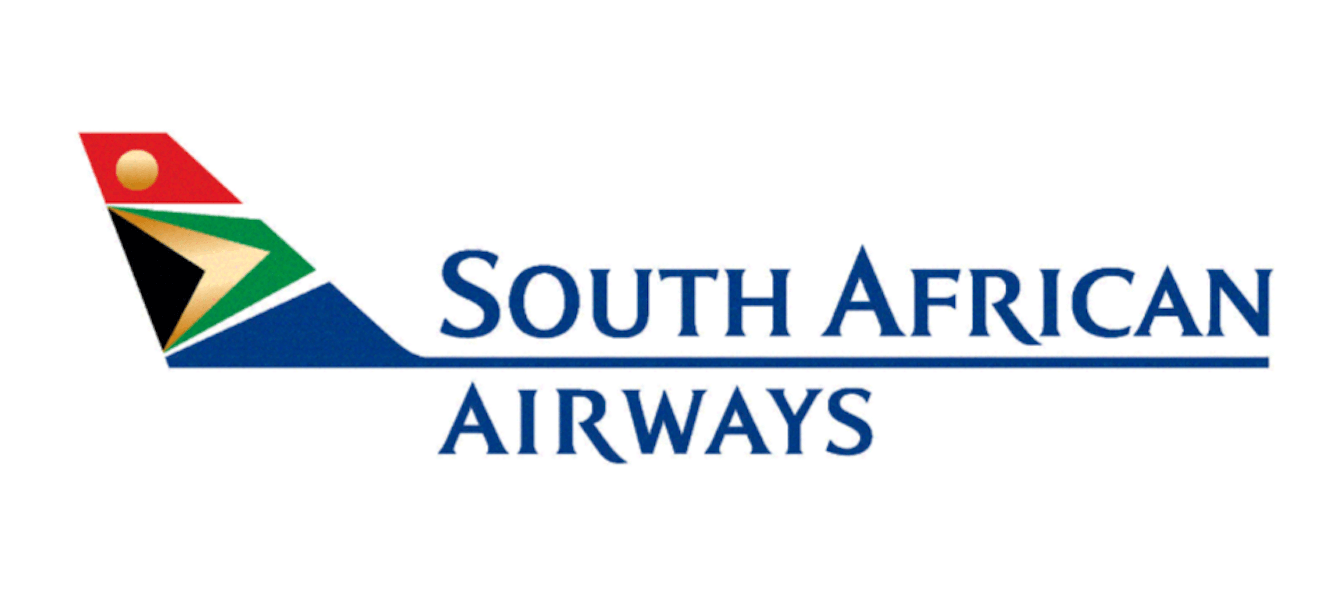
Ghanaian American women’s advocate and media personality Eugenia Boateng, took a trip to Tanzania to raise awareness about the severe challenges Tanzanian women face due to inadequate access to clean water.
Popularly known as Aunty Eugenia, the student of Africana Studies and International Affairs at Rutgers University, United States, embarked on the trip in time for world Menstrual Hygiene Day last month, to delve deeper into the water crisis gripping the nation and its impact on women’s menstrual health.
The lack of access hampers menstrual hygiene and leads to serious health issues, including infections, complications, and a ripple effect on their education, work opportunities, and overall quality of life.
The water crisis
According to Water.org, water, sanitation, and hygiene (WASH) systems depend on the reliability of good quality water. Tanzania is undergoing a water and sanitation crisis.
Out of its 65 million inhabitants, 58 million (88% of the population) do not have access to safe drinking water, and 49 million (74%) do not have access to adequate toilets. People living in these conditions, especially women and girls, spend a large amount of time traveling vast distances to obtain water.
Other difficulties, such as underfunding of planned government initiatives, population increase, and extreme weather events caused by climate change, present additional obstacles for individuals living in poverty. Access to clean drinking water at home is more important than ever for Tanzanian households.
Empathy and advocacy
Aunty Boateng demonstrated empathy for the women of East Africa by drawing comparisons to the hardships her own family from Ghana, West Africa, had faced.
“The recurring cycles that my fellow sisters and elders in Tanzania are going through are incredibly heartbreaking and astounding,” she said.
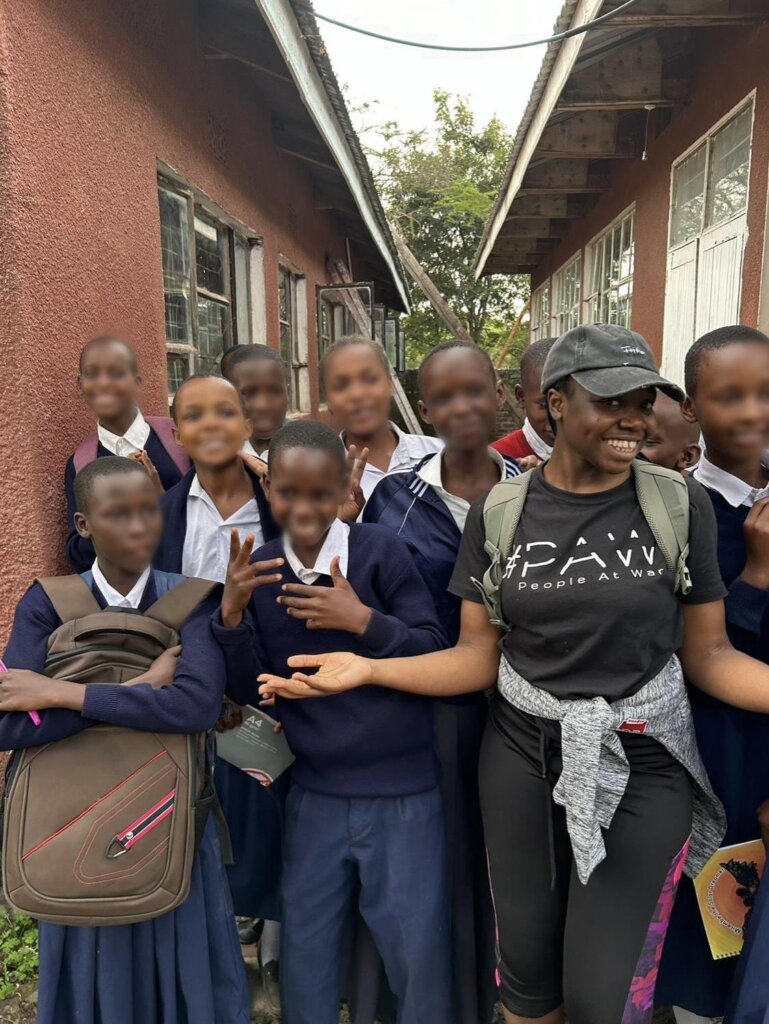
Before her travel, Aunty Boateng conducted thorough research at Rutgers University on menstrual hygiene in rural areas of Tanzania.
“Spending many hours searching for a material that ought to be easily accessible consumes time away from their education, their families, and ultimately from realizing their goals,” she noted.
Addressing educational challenges King’Ori Secondary School
On May 21, Eugenia visited the King’Ori Secondary School in Mareu, Tanzania, where the assistant headmaster addressed concerns about the girls at the school. One of the school’s concerns is that inadequate sanitation facilities contribute to lower school attendance and performance among the girls.
“When the pain is severe, they just go home…the problem is that it’s hard to catch up from what they missed, so there’s low performance,” said the headmistress of King’Ori Secondary School.
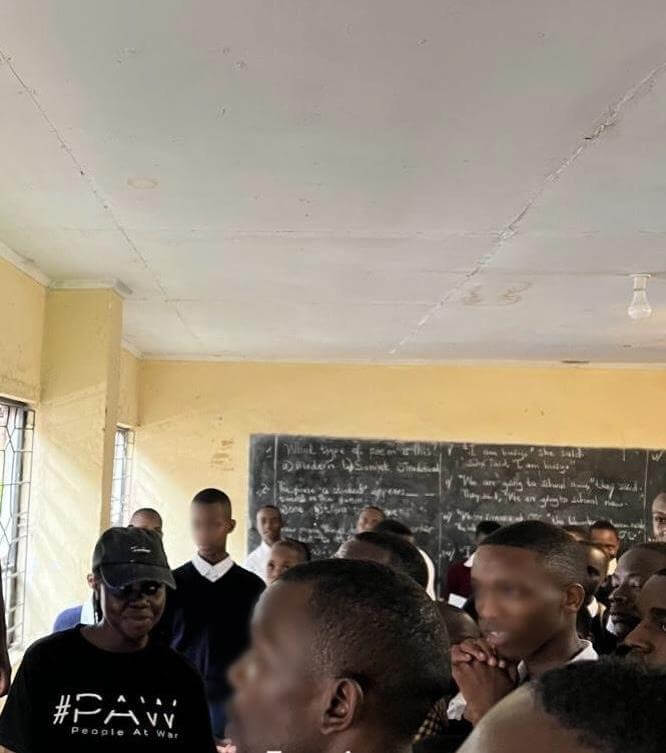
Boateng inquired about the cost of a month’s supply of menstrual products. The teachers of King’Ori Secondary School mentioned it costs $250 per month for all 350 girls, meaning it costs approximately 71 cents per girl to provide sanitary products.
Challenges at Mareu Hospital
Boateng passionately shared her experience at the Mareu Hospital in Arumeru, Arusha, Tanzania, and her discussion with the Head Doctor at the facility. The Head Doctor, Ramadhani Shabani Boi agreed that the water supply is indeed an issue.
“Once a week we receive 5000 liters of water. Since one month ago (April), we have not gotten water because of a technical problem with the authority,” said Doctor Boi referring to the Rural Water Supply and Sanitation Agency (RUWASA), which supplies water in the region.
When Boateng inquired about the alternative options for when the water supply was out Doctor Boi replied that “rainwater collected from other buildings like the outpatient department is used, but it is not clean.”
Doctor Boi also explained the difficulty of accessing sanitary pads, which cost about 500 Tanzania Shillings, or approximately 19 cents each.
“It’s heartbreaking to see that something that is less than 50 cents and would be very useful for a woman’s hygienic health is a luxury and not easily accessible,” Boateng remarked.
Doctor Boi further explained that because women in the community cannot afford pads, they resort to using pieces of cloth, known as “kanga” in Swahili. He explained that “the negative impact of that is that women get urinary tract infections due to poor
hygiene, the usage of cloth instead of pads, and they do not change their pads three times a day.”
Then he shared that 700 people come into the facility each month, and half (350) of them are women aged 15-30. Additionally, most of the women who are checked into the hospital suffer from urinary tract infections.
Solutions for a healthier environment
To achieve a healthier and more hygienic environment, Boateng emphasized the importance of “accessing and using effective and affordable menstrual materials; having supportive facilities and services, including water, sanitation, and hygiene services, for washing the body and hands, as well as changing menstrual materials, and cleaning and/or disposing of used materials.”
She mentioned the need for more menstrual health education in schools so women are more knowledgeable about the risks of poor hygienic practices and what it means to undergo a menstrual cycle. Boateng urged that the future of these girls is on the line if the problem is not addressed sooner. Boateng reveals that “this trip was not only informative but transformative”.
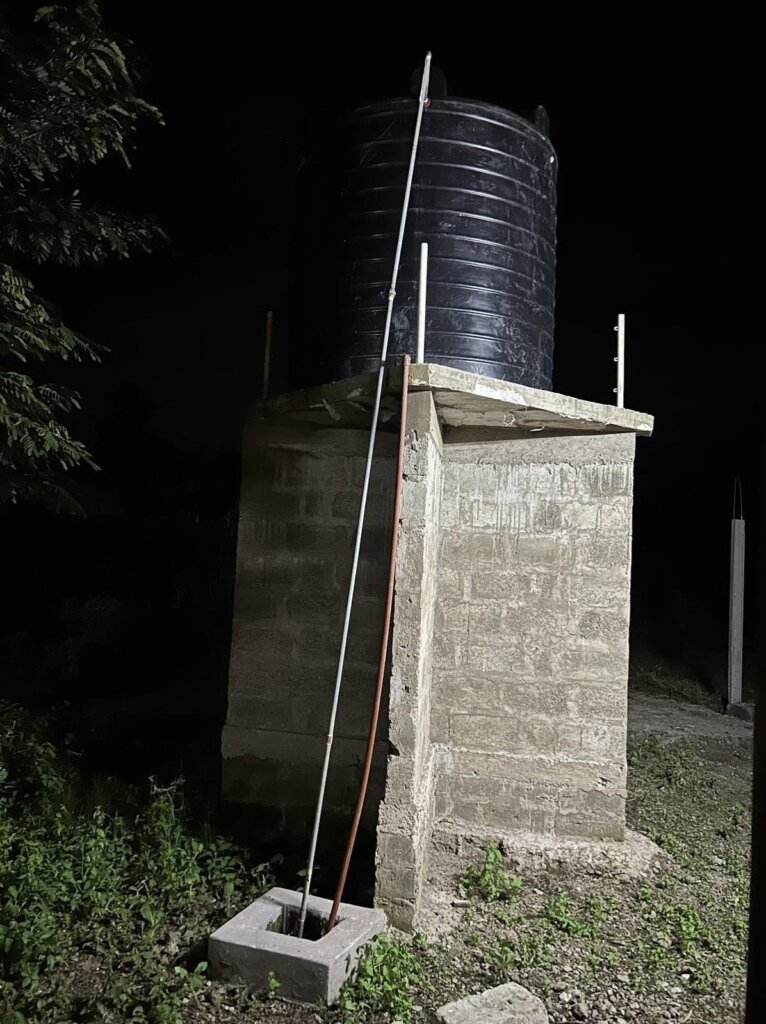
She explains how she had no expectation to build a bond with the people in the community but it simply just happened. While she was having conversations sharing stories in which Boateng says “we all found out though we live in different countries, we are very similar after all.”
“The trip further proves that that are unspoken truths and circumstances that people live in, in which the media does not address. People view Africa as a third world and developing continent but I view it as home. The people are my family. The women in the community felt like my little sisters, aunties, and grandmothers,” said Boateng.
Government and global initiatives
The Tanzanian government, in partnership with the World Bank, is aggressively tackling menstrual health and hygiene (MHH) through the Sustainable Rural Water Supply and Sanitation Programme (SRWSSP).
The initiative aims to improve access to rural water and sanitation services in participating districts while also strengthening sector institutions’ ability for long-term service delivery.
A program in Tanzania is making significant progress in promoting MHH for girls in rural primary schools. The initiative focuses on creating safe and sanitary environments for girls during their periods. This includes constructing or rehabilitating WASH facilities in 837 schools.
These improved facilities feature separate latrines for girls and boys, with lockable doors and easy-to-clean floors, ensuring girls’ safety and comfort. The program addresses the specific needs of menstruating girls by building changing rooms with incinerators within the WASH facilities.
These dedicated spaces allow girls to manage their periods with privacy and dispose of menstrual products hygienically. Each participating school also benefits from a designated menstrual counselor, who can be a teacher, a female parent, or a community health worker, providing girls with accurate and age-appropriate information about menstruation, menstrual hygiene practices, and related self-care.
This program represents a significant step forward in tackling the challenges faced by girls in rural Tanzania who lack access to proper menstrual hygiene facilities and education.
In addition, regional programs like Tanzanian NGO Maji Safi Kwa Afya Bora have been essential in advancing sanitation and hygiene standards in rural communities, which has helped to provide long-term solutions to the water crisis. These initiatives demonstrate how crucial it is for local and multinational groups to work together to address difficult global issues.
Source: Eugenia Boateng
Abeeb Lekan Sodiq is a Managing Editor & Writer at theafricandream.net. He is as well a Graphics Designer and also known as Arakunrin Lekan.

